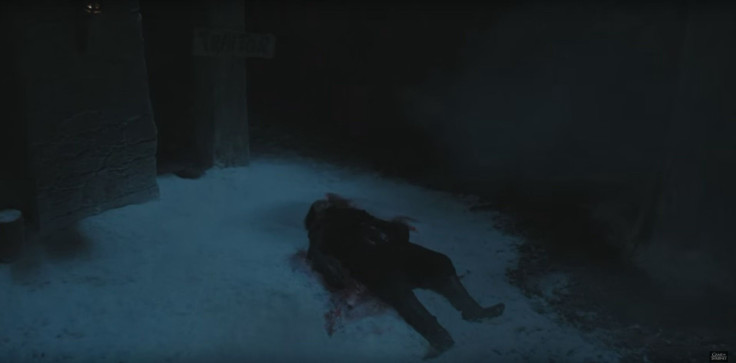Game of Thrones season 6 took a not-unexpected turn in the newest episode. Spoilers forthcoming. Jon Snow, freshly revived, has sort of adjusted to being alive again, and took one last action as Lord Commander of the Night’s Watch before relinquishing his duties—totally justified, since his watch ended when he died. That action was executing the traitors who killed him, led by Alliser Thorne. Alliser failed and died, but guess what—he was right to kill Jon Snow.
Jon Snow Was A Bad Lord Commander
Alliser gave a little speech before his execution, saying that he hoped he would have the courage to betray Jon again, even knowing how it would end. He said he had to either betray Jon or betray the Watch, and he made his decision. I don’t want to say Alliser made the correct decision. After all, Jon Snow is probably the prince that was promised. Melisandre confirmed it, and she has a great track record with these things (deadpan). But Alliser was still justified in his action, even if it was wrong in the long run.
After all, Jon Snow really did betray the Night’s Watch. That was the nominal reason for the mutiny: The Lord Commander had betrayed ancient precepts of the Watch, and the only way to stop him was to kill him. For thousands of years, the Night’s Watch has only had one purpose, in practice: To stop wildlings from crossing the Wall and attacking Westeros. The Watch was originally established to face off against the White Walkers, but the White Walkers haven’t been seen in 8,000 years. Defeating the wildlings was the only purpose of the Night’s Watch.
Lord Commander Jon Snow instead made peace with the wildlings—and even more unforgivably, he invited them into Westeros proper. It’s hardly shocking that some among the Watch would find that hard to stomach. Alliser Thorne leads that faction; that looks suspicious, since he has very clearly hated Jon Snow since way back in season 1. But Alliser has always been a principled man. He’s traditional and sticks to his beliefs. He just also happens to be a huge asshole, at least to Jon Snow. But beyond that, he doesn’t want the Watch to change (compare this to Janos Slynt, who was just a straight-up insubordinate jackass).
Jon Snow does. Unlike Alliser, he has a long-term vision for the Watch—he understands that the wildlings aren’t the real threat, and the White Walkers are. But that vision really does violate the Night’s Watch acting core principle. Jon Snow didn’t try all that hard to make his case, either: He relied on his absolute authority as Lord Commander, plus a few token speeches. He threw aside precepts of thousands of years—precepts that were, admittedly, outdated—without securing a consensus.
It was clear tyranny. It was enlightened tyranny. But Alliser Thorne was at least partially justified in leading the mutiny against Jon Snow to restore the integrity of the Night’s Watch as it had always been. This case is even more clear in the books, where Jon Snow directly wanted to lead the Night’s Watch to interfere in the wars of the Seven Kingdoms—an act that was utterly forbidden. Alliser Thorne knew it was an act of treason to kill Jon Snow, but he put the Night’s Watch above his loyalty to the Lord Commander.













![[EG April 19] Best 'Stardew Valley' Mods That Will Change](https://d.player.one/en/full/226012/eg-april-19-best-stardew-valley-mods-that-will-change.png?w=380&h=275&f=955520b8313253ee3c39c791f6210f38)



